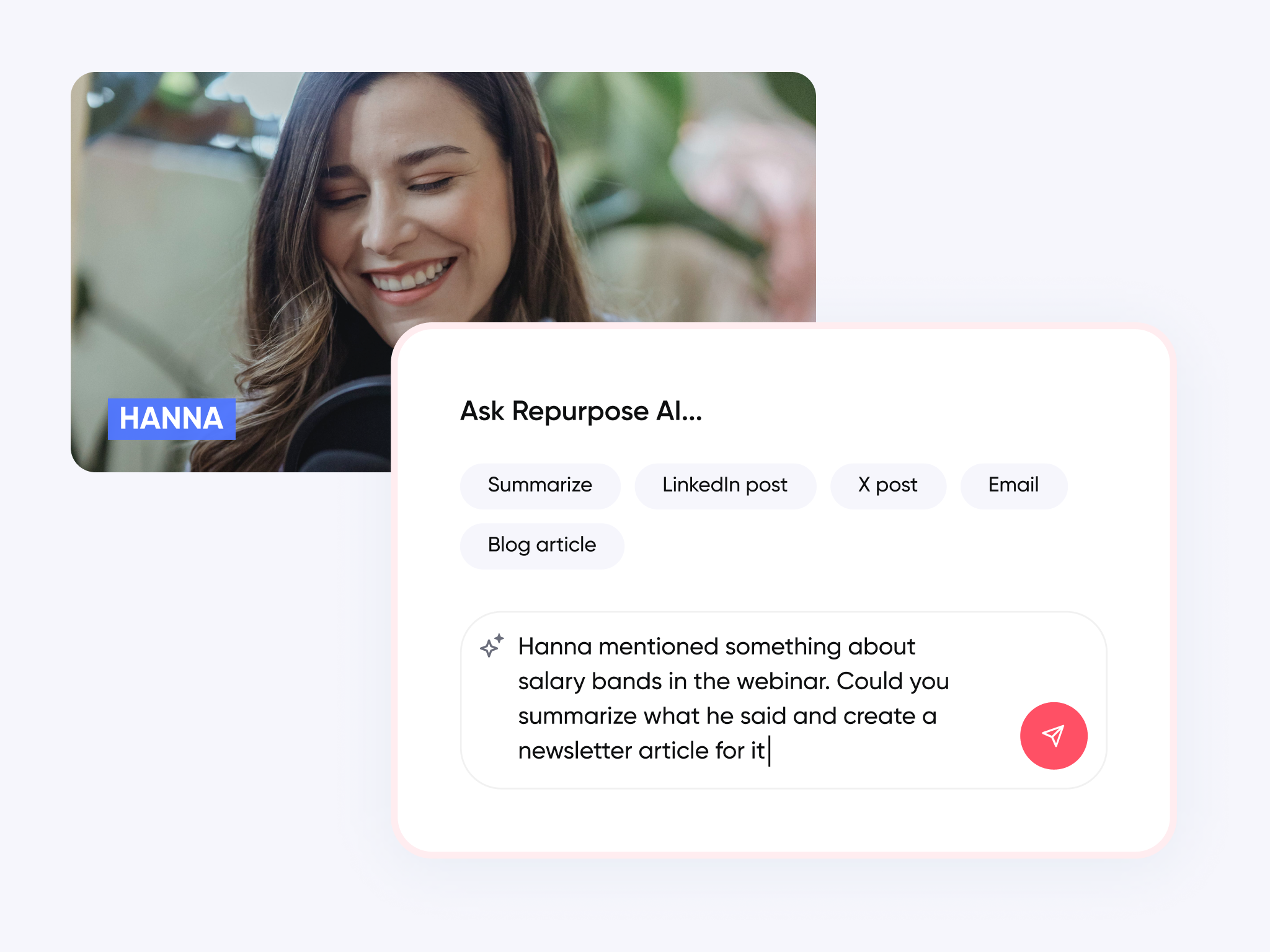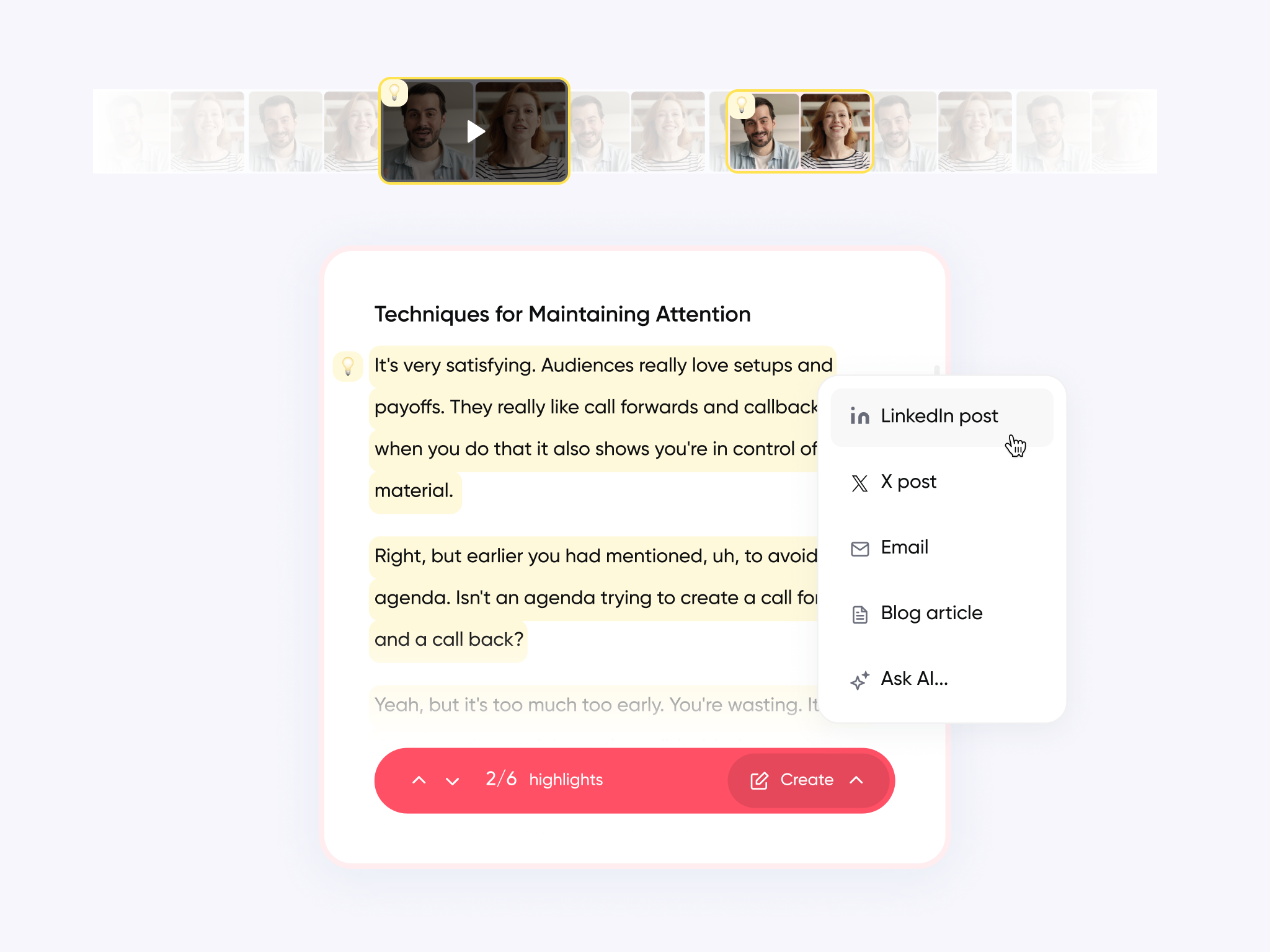Last year we witnessed the coming of AI at work, with millions of people jumping on it, ChatGPT reached its first 100m users in less than 2 months. A record. The biggest surge was in generative AI, or so called GenAI. GenAI of course wasn’t new. Products like copy.ai paved the way before ChatGPT. However, it was ChatGPT that succeeded because it was able to generate better results and have a more natural user experience with a wider range of applications than just copy writing.
With a new technology and everything it unlocks, it made sense for us to explore what this could mean for Contrast. We were of course not alone in this. Many others offered the ability to generate, summarize and X with AI. The concept of the ChatGPT-wrapper was born. Built on top of a feature. Or an entire company built on top of ChatGPT. And of course the inevitable deaths of startups that became nothing more than a wrapper.
That initial AI wave was big. Big with a capital B. On X (back then still Twitter) the hype was even Bigger. Every company promised a future where we would work faster, better and think bigger. Not my words, but Notion’s. But in reality, asking Notion to generate a draft of a product spec was entertainment at best.
Looking back, to a degree these companies were somewhat right in implementing these features. After all, you've to start somewhere. But the way how, was… a little underwhelming. It lacked jaziness, but mostly it lacked usefulness.
There were some welcome exceptions like Slite (Notion-competitor), who tried a lot harder at the AI-game. Integrating AI on top of your knowledge base and being able to ask it questions such as "How do I report a holiday?" is far more useful than what Notion did (and ironically would have solved Notion's awful search).
Luckily I wasn’t alone in thinking that most companies did an underwhelming job at implementing AI. What I heard from product people in other startups that jumped on these features from the get-go was that the initial reaction to these features was great but retention and usage was low.
Surprise? Not mine. Many of these companies didn’t ship AI features because it solved a concrete problem for their users. Instead, they were simply riding the wave of AI — hoping it would unlock “something” for them, without knowing what that something was. And that's a bad thing, as monsieur Jobs would agree.
Not jumping on the AI wave was sometimes hard to resist for us. Especially seeing the Tweets that got over a million views for a simple ChatGPT use-case. But we felt that for AI features to make sense inside Contrast, they had to really make sense for the user. During our experiments with AI we never really got to that feeling “yes, this is it, people will love it”.

One of the things we tried is to help you write your registration page. It’s one of the more annoying things you’ve to go through when hosting a webinar. So solving that made sense, also for the user.
Whenever we ship a new feature we think it's important not to focus on the problems it solves, but also the problems it creates. Advanced settings help one user but create problems for 10 other users.
This was the same with the results that we got from asking ChatGPT to create registration pages. There was no way these registration pages would have a higher conversion rate than those created by humans. Ultimately, we see it as our responsibility not only to help people do things faster on Contrast, but also better.
This was at the beginning of this year. Since then, we’ve let the idea of AI marinate for a bit. And as always, time cures all things.. Not only have the LLM-models evolved into much better models (GPT-4, Mistral7B etc..). We also have had the time to reflect on why most of these AI features didn’t really get us excited.
So where’s the AI? Well it’s coming. Finally.
In a way that’s quite different from what you’ve seen. We make it our mantra that AI should be human-inspired, AI complemented. Not the other way around.
So what do we call human-inspired on Contrast? It’s all of the content you create by simply hosting your webinars. The quality of content you create during your webinars is incredibly valuable, specific and difficult to find outside of the webinar format. Think of it this way, a webinar is essentially one hour of content where a CEO, industry expert or influencer is sharing their knowledge on a topic.

The problem today is that it's difficult to do something with that content unless you watch the entire webinar. Then make a transcript, create chapters and then repurpose that in new content and share it on the WorldWideWeb.
Just asking.. but why does it have to be that way? That's right, this should be way easier in 2023.
With AI, we want to make it ultra snappy for you to reuse the super valuable content you and your team created during your webinars. It of course starts with the transcript. This was already possible. But soon we’re adding a suite of features on top of this that allow you to create different types of content pieces from your webinar. These can be newsletters, SEO-optimized blog posts and of course social media posts optimized for the network you’re posting on about the video clip you just created.
We think that the real magic happens when you combine the video you created and AI. Suddenly you're able to say, create chapters for this webinar. Clip chapter 4, add subtitles and create a post for LinkedIn that goes with it. It simply is great for creating new content with content you already have lying around.

So it makes things possible that were not possible before. Cool. What we love about this is that it will also take away lots of the boring, time-consuming work. Remember we discussed how we asked ChatGPT to create a registration page for a webinar and the results it delivered? Exactly. Well if you take the human-inspired approach and write a registration page for your replay based on the webinar itself, the results are incredible. The same goes for the confirmation email, or all the things you've to do to get your webinar ranked on Google.
This is an incredibly exciting announcement and vision for where we see Contrast grow.
The thing is, why stop at webinars?
Exactly. From today onwards, you can host all your video content on Contrast. You can already enjoy the benefits of our branded embeds. We’re adding Video SEO features on top of that very soon. When we’re done with that, we give you access to all those same repurposing features from the webinar on your other hosted videos. Finally a world where we would work faster, better and think bigger.
After that? We don't know yet, but it's going to be exciting.


Get Early Access to Our AI Features
Start for free up to 30 registrants. No credit card needed.
Start for free